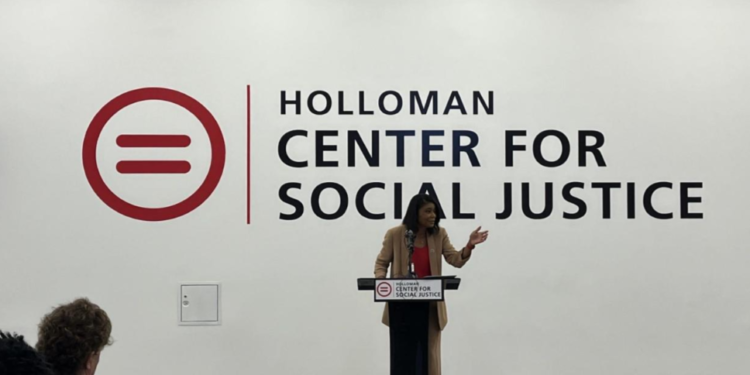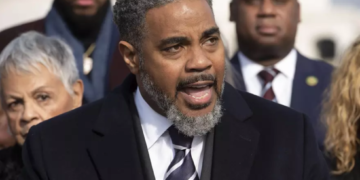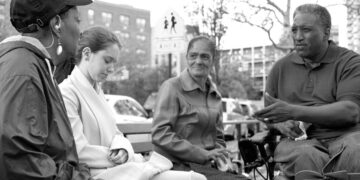Christie Kuhns, president and CEO of the Urban League of Greater Southwestern Ohio, introduces the organization’s latest report titled “The State of Black Cincinnati: Journey to Parity.” Img source: cincinnati.com
June 26, 2024 Story by: Editor
Cincinnati has made strides toward equity over the past decade, yet challenges persist, as highlighted in a recent report by the Urban League of Greater Southwestern Ohio.
Released on Juneteenth morning, “The State of Black Cincinnati: Journey to Parity” builds upon a 2015 assessment, examining inclusivity and equity across economics, employment, COVID-19 impacts, health, education, housing, criminal justice, and civic engagement. The findings, rooted in data, offer a comprehensive view of the current realities for Black Cincinnatians and propose actionable steps for improvement.
Addressing the ongoing struggle, Christie Kuhns, president and CEO of the Urban League, emphasized the collaborative effort needed to combat generational poverty, stressing that lasting change will require sustained commitment.
Key insights from the report include:
- Economic Disparities: Black households continue to face significant economic disparities, with a median income of $31,520 in 2021, compared to $70,909 for white households.
- Criminal Justice: Black incarceration rates have risen sharply, with Black youth constituting 56% of the juvenile population in the Department of Youth Services in 2018, and overall Black incarceration rates in Ohio have increased by 125% since 1978.
- Perceptions of Inclusivity: A growing number of Black respondents view Cincinnati as inclusive, contrasting with previous years’ perceptions.
- Quality of Life: A notable increase in Black respondents rating their quality of life positively, with 71% reporting good or excellent quality of life, up from 59% in 2015.
However, disparities persist in health outcomes, life expectancy, and access to care, underscoring the report’s call for targeted reforms in education, housing, health, and criminal justice.
The report’s policy recommendations advocate for:
- Economic Empowerment: Support for job creation and Black-owned businesses.
- Education: Reforms aimed at ensuring equal opportunities for all students.
- Housing: Policies promoting affordable and equitable housing.
- Healthcare: Initiatives to address disparities and improve access to healthcare.
- Criminal Justice: Reforms to promote fairness and reduce racial biases.
Council member Reggie Harris highlighted the report’s role as a guiding document for African American leadership development, stressing its importance in shaping strategies for achieving parity.
Candra Reeves, the report’s author, urged community action based on its findings, emphasizing accountability for elected officials in driving meaningful change.
Mayor Aftab Pureval echoed the sentiment, acknowledging the report’s role in holding leaders accountable and charting a course toward equity. Source: AoI

















